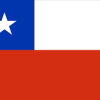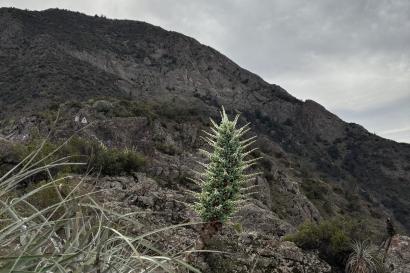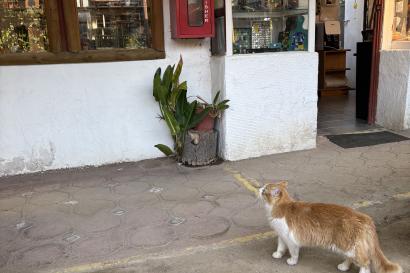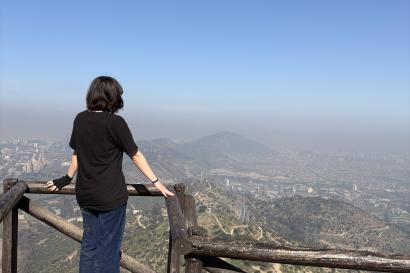My program’s focus in Politics and Social Justice shines a specific light on human rights and the various violations of them. My favorite class that I’m taking at our IES Abroad Center here in Santiago is called “Human Rights in Latin America,” and focuses on the history of these events. One of our field trips for this class was to Villa Grimaldi, which was a torture site during the dictatorship of Augusto Pinochet. I promise I won’t go into too much detail of all that went down, but it was an impactful experience and it helped me learn a lot about what was going on in Chile at this time, which has many lasting effects in the Chile I’m studying in today.
I’ll begin with some basic history: Salvador Allende was President of Chile before the military coup d’état, and was Chile’s, and Latin America’s, and the *world’s* first democratically elected president with socialist views and policies. Unfortunately, his way of governing was ineffective, and more or less an absolute disaster. Allende was determined to maintain democracy to set an example, and didn’t want to resort to violence. He didn’t know what to do about poverty, and his policy ideas were…not good, to say the very least. His government allowed people to be seen and immediately discriminated against, with virtually no repercussions. It was Allende’s focus on democracy and socialism that made him a target of concern for the United States, who didn’t want “another Cuba.” The violations of dignity and basic human rights that Chile’s citizens underwent were used as reasoning for a change in power, and support of a strong government that could put an end to these systems. This was the spark that began Pinochet’s dictatorship.
Initially, Villa Grimaldi was a restaurant: it featured a tower, stables for animals, and a pool, as well as a place to sit down and eat. Its purpose was changed by the dictator's regime, and the main goal of its agents was to find Allende’s supporters and show them that communism and radical leftism were not movements worth supporting. The torturers wanted to punish, warn, and interrogate, and used psychological and physical torture to get their points across. They would ask one prisoner where the guns were, and hurt another prisoner if the first didn’t answer. This was a system of fear and terror that employed distinct mechanisms to create even more widespread fear and terror. Torturers would use the same tower and pool and trees that used to surround the restaurant to carry out their inhumane actions. The outside citizens were complicit bystanders to these events; everyone knew, and everyone did nothing, because they didn’t want to be next. All of the errors made by the regimes in Brazil were corrected by the military governments in Chile and Argentina, and this torture site was active for over five years, resulting in the deaths and disappearances of more than 4,500 people.
The Villa Grimaldi you see today is beautiful: full of fountains and art and trees and life, and this is not without reason. The current space is dedicated to the people who were lost, and its beauty aims to serve as a metaphor for the lives that were ended there.
Something that was emphasized throughout our visit was that we as visitors and caretakers of the Villa are always in a process of learning and finding more from the site. Building remains were recently recovered that give more insight into what went down at this site during this dark period in Chile’s history.
Clearly, this was not your average field trip, but I think that it was probably the most important one I’ve been on. It was incredibly informative, largely thanks to my wonderful professor Pablo Fierro, but its story is also vitally important, and as I mentioned before, directly affects the current policy decisions being made in Chile. There is a referendum for a new constitution on September 4 of this year, and the whole country is up in arms, campaigning to approve it or reject it. The reason for this change is that the current constitution was written and established during the dictatorship of Pinochet, and holds a lot of bad memories for some Chilean citizens. I am so lucky to be here during this incredibly interesting time politically, and am intrigued to see what the people decide. Overall, I really enjoyed our visit, and I can’t wait to see what else is in store for my time in Chile.

Maggie Peyton
My name is Maggie and I'm from Chicago, Illinois (one of the best cities in the States in my completely unbiased opinion). I'm left-handed, could watch Encanto every day, and I am a huge fan of the singer-songwriter Mitski. I study Public Policy at the University of Illinois in Chicago and am excited to learn more about Santiago. I hope to find a community away from the one I have at home and make Santiago my own.








